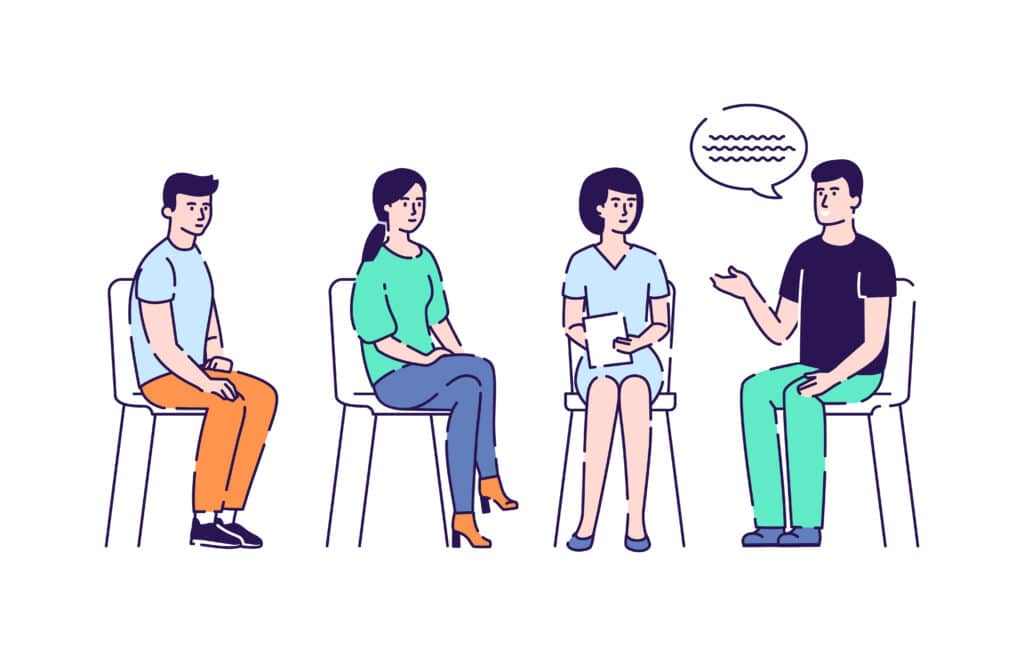
Eating disorders affect about 10 million females and 1 million males in the United States. 1 in 10 individuals have either experienced an eating disorder or know someone who has. While it may not be as common as other mental illnesses, it is important to recognize that eating disorders can lead to many premature deaths and struggles. We want to share proper information about different eating disorders and how they can affect people’s bodies. In this blog, we will share causes, myths surrounding EDs, different types of disorders, and how therapy can help you recover from an eating disorder.
Potential Causes
A common misconception about eating disorders is that they are a lifestyle choice. They are often more related to thoughts and emotions that the neuropathways in our brains can create. There are underlying causes of eating disorders that can take it from a diet fad to a much more serious condition. Mental illness and the surrounding environment can make it more difficult to break these habits.
Genetics
Genetic predisposition plays a significant role in the development of eating disorders, If family members have struggled with eating disorders, you may be more susceptible to eating disorders. Genetic factors are not sufficient alone to create an eating disorder, other influences will be necessary for individuals to develop a disorder.
Social Influences
Our surrounding culture and those that we interact with can influence the development of eating disorders. Social pressures and media can prioritize an unattainable body type which can lead people to participate in unhealthy behaviors to please others. Self-confidence levels, anxiety, or bullying are all social impacts that can contribute to limiting eating or overeating.
Trauma Or Life Transitions
When you experience trauma or major life changes, your brain can develop unhealthy coping skills. Divorce, loss of a loved one, physical abuse, or job changes can trigger the onset of an eating disorder. During these traumatic events, you can lose control or experience extreme stress which can force you to take solace in food or the lack thereof.
Different Types Of Eating Disorders And Their Symptoms
Many of the symptoms of eating disorders are the same for each type, but different EDs can come with different behaviors and actions.
Anorexia Nervosa
Those with anorexia have an intense fear of gaining weight. They severely limit their food intake and have a distorted body image. They will do anything to avoid being overweight and may still feel they are overweight even when they are malnourished. These individuals have constant thoughts about food, calories, and their bodies and how it will affect their weight.
Bulimia Nervosa

Individuals with bulimia experience episodes of excessive eating followed immediately by purging themselves by forcing vomiting, fasting, or long workouts to rid their bodies of excessive calories. Bulimic individuals worry about their body image and often worry about the shame that they would feel if people knew about their habits. They do these acts in secret to avoid people learning about their symptoms.
Binge Eating Disorder
Frequent overeating plagues those with Binge Eating Disorders. Consuming large amounts of food in a short period to wear they even experience discomfort. They can not control their bingeing, even if they know that it is harming them. Guilt, shame, and distress are all common emotions that come with eating disorders.
Recovery Options
Professional Intervention
Seeking help from an outside source is often the best way to heal from an eating disorder. Therapy, medical professionals, and nutritionists can all be used to help address every facet of the disorder. There are many hospital wings, specialized clinics, or nutrition centers that you can go to to find resources and understand the mental aspect of your disorders.
CBT Or FBT Therapy
Cognitive-behavioral therapy and Family-based treatment can be used for individuals with eating disorders. These therapeutic approaches help you to change unhealthy habits.
Family-based treatment can help adolescents specifically by giving them the support they need to recover. If a family has contributed to the furthering of an eating disorder, a therapist can work with both people to help change behaviors and thinking.
Support Groups
Since eating disorders are a common problem among teens and adults, there are support groups that can help make facing your challenges easier. These groups are a place to share struggles, ask questions, and share success stories. Support groups can be empowering for those with eating disorders to feel less alone.

Nutritional Counseling
Because eating disorders are based on your relationship with food, meeting with a nutritionist will help you develop more regular eating habits. Nutritional counseling can help suggest meal plans, track your progress, help you better understand nutrients and calories, as well as ensure you are not having nutritional deficiencies.
